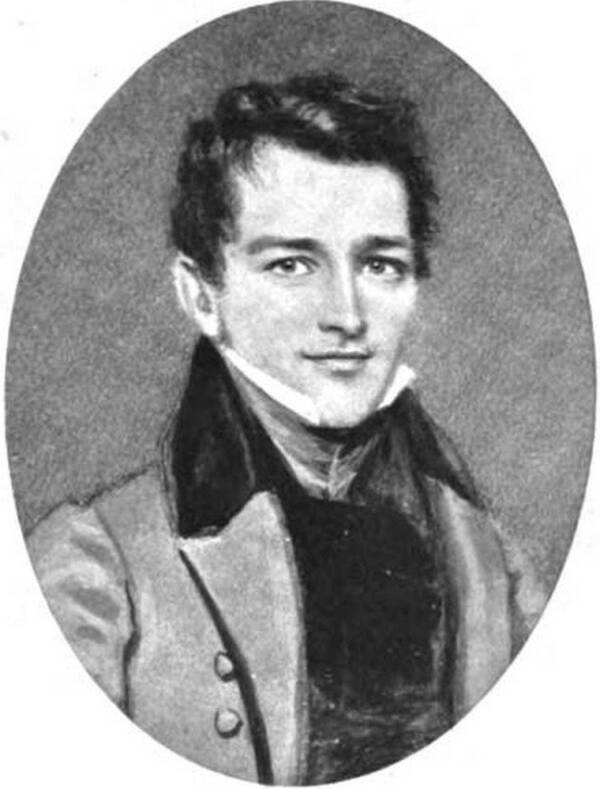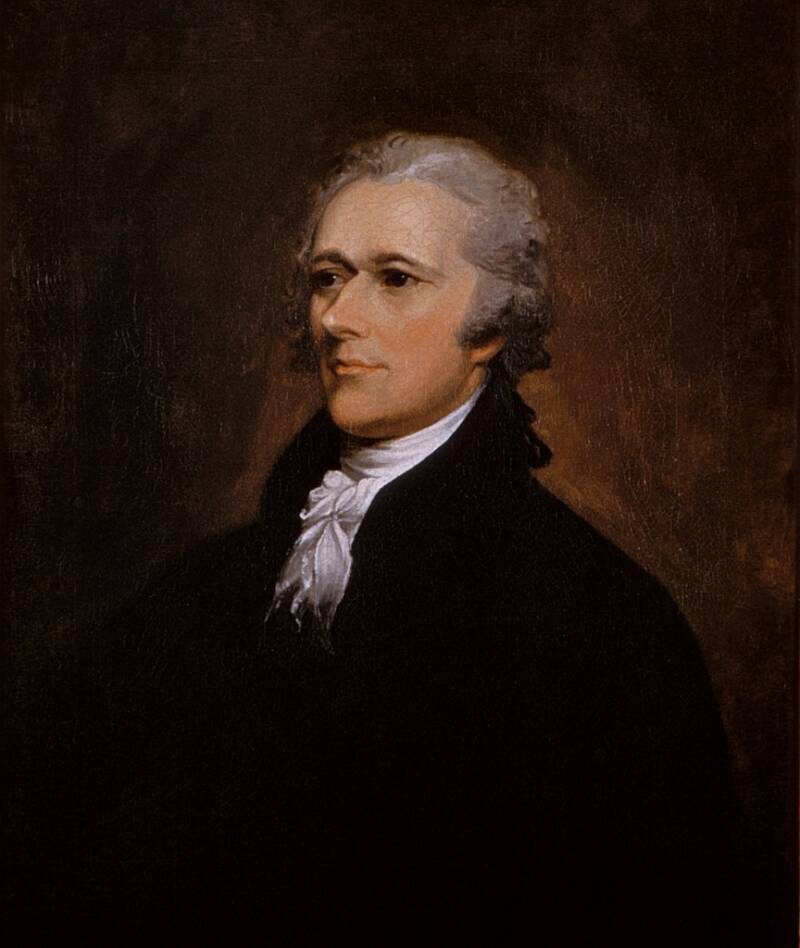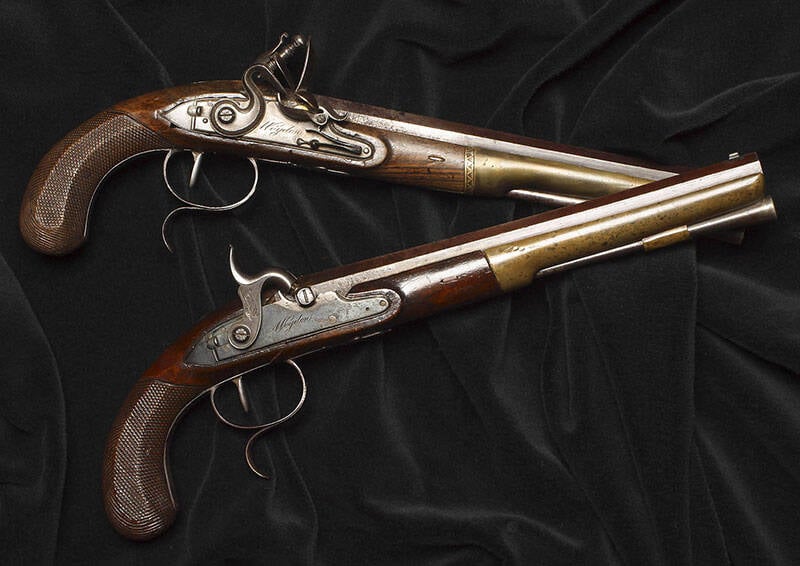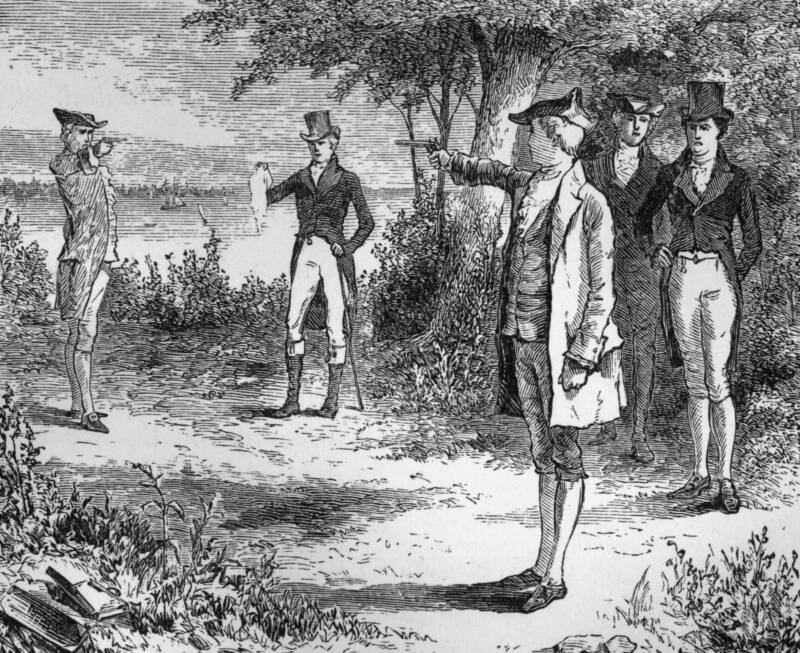Three years before Alexander Hamilton died in his infamous duel in 1804, his son Philip Hamilton died in the same way — in nearly the same location.
Philip Hamilton seemed destined for great things. The son of Founding Father Alexander Hamilton, Philip had money, intelligence, and charm. But his life was cut short in 1801 when Philip died in a duel, in an eerie foreshadowing of his father’s death three years later.

Public DomainNo portraits exist of Philip Hamilton. This image, of his brother William, is often misattributed to him.
Until that point, Philip — Alexander Hamilton’s eldest child — had been the apple of his father’s eye. Alexander carefully monitored all aspects of Philip’s education, and hoped that Philip would follow him into a law career.
In fact, it would be Alexander who followed Philip. After Philip’s dueling death, Alexander Hamilton infamously died the same way, a double tragedy that would have a profound effect on the Hamilton family.
The Firstborn Son Of A Founding Father
Philip Hamilton was born on January 22, 1782, in Albany, New York, the first born child of Alexander Hamilton and his wife, Eliza Hamilton. As PBS notes, he was named for Eliza’s father, the Revolutionary War general Philip Schuyler.
“Mrs. Hamilton has given me a fine boy,” Alexander proudly wrote in a letter to the Vicomte de Noailles, “whose birth, as you may imagine, was attended with all the omens of future greatness.”
In a letter to Richard Kidder Meade that August, the new father apologized for not “having said enough about our little stranger.” He describe Philip as “a very fine young gentleman” who showed “intelligence and sweetness of temper.”
Alexander added:
“It is agreed on all hands, that he is handsome, his features are good, his eye is not only sprightly and expressive but it is full of benignity. His attitude in sitting is by connoisseurs esteemed graceful and he has a method of waving his hand that announces the future orator.”

Public DomainAlexander Hamilton was proud of his infant son, and happily detailed his intelligence and good looks in a letter.
The only possible fault that Alexander Hamilton found with his seven-month-old son was that “he laughs too much.”
Indeed, Alexander had high hopes for his son’s life and career, and made sure that Philip was on the proper path to achieve them. As PBS reports, Philip Hamilton attended boarding school, then Columbia University, and then began his study of law. Alexander personally oversaw Philip’s law studies and instituted a rigid schedule to ensure his son’s success.
“From the first of April to the first of October he is to rise not later than six o’clock; the rest of the year not later than seven,” Alexander wrote. “From the time he is dressed in the morning til nine-o’clock (the time for breakfast excepted) he is to read law.”
Philip still had time for friends and extracurricular activities, however. And in 1801, he used some of his free time to take a friend and confront another young man who had insulted his father.
The Death Of Philip Hamilton
On Nov. 20, 1801, Philip Hamilton made his way to the Manhattan’s Park Theater with a friend of his named Richard Price. At a showing of the comedy The West-Indian, Philip and Price confronted a 27-year-old lawyer named George Eacker, who had reportedly insinuated during a Fourth of July speech that Alexander Hamilton might use his former position as inspector general of the U.S. Army to intimidate political opponents.
Philip “barged into a box where Eacker was enjoying the show… [then] began taunting Eacker about his Fourth of July oration.”
Their argument spilled out into the theater lobby, where Eacker called Philip and Price “damned rascals.” These were fighting words at the time — literally — and Price and Philip soon challenged Eacker to a duel.

Library of CongressThese dueling pistols, used by Alexander Hamilton and Aaron Burr, were also used by Philip Hamilton and belonged to his maternal uncle, John Barker Church.
Eacker had little choice but to accept. Two days later, he met Price in New Jersey, where they exchanged four shots and both walked away unharmed. Then, it was Philip Hamilton’s turn.
First, Philip went to his father for advice. As the Constitution Center notes, Alexander Hamilton was no stranger in duels. He had been in as many as 10, though most of these were settled without violence. He suggested that his son use a dueling method which the French called delope, in which Philip would not fire first or would simply fire into the air.
Armed with pistols borrowed from his maternal uncle, John Barker Church, Philip Hamilton met Eacker in Weehawken, New Jersey, on Nov. 23. Philip seemed to follow his father’s advice and did not raise his pistol. After several tense moments, Eacker raised his, and Philip followed suit. Then Eacker fired — and fatally struck Philip above the hip. Though Philip’s own gun then went off, it may have been involuntary.
“His manner on the ground was calm and composed beyond expression,” which had recently been established by Alexander Hamilton himself, wrote of Philip’s fatal duel. “The idea of his own danger seemed to be lost in anticipation of the satisfaction which he might receive from the final triumph of his generous moderation.”
Philip Hamilton was rushed back to Manhattan, but perished from his wounds the next day. He was 19 years old.
The Profound Aftermath Of Philip’s Death
The death of Philip Hamilton devastated his family. At his funeral, Alexander Hamilton could barely stand, and PBS reports that one of his friends noted that they’d never seen “a man so completely overwhelmed with grief.”
“Permit a whole family to mingle their tears with yours upon the late distressing event that has taken place in your family,” Alexander Hamilton’s fellow Founding Father, Benjamin Rush, wrote in a letter three days after Philip’s death. “You do not weep alone. Many, many tears have been Shed in our city upon your Account.”
Alexander did not reply to Rush until March 1802. Chernow writes that Alexander had fallen into a “bottomless despair” and Alexander told Rush that he needed to “wait for a moment of greater calm” before writing back.
“My loss is indeed great,” he wrote in his despondent reply. “The highest as well as the eldest hope of my family has been taken from me. You estimated him rightly — He was truly a fine youth.”
Alexander wasn’t the only member of the Hamilton family to be deeply affected by Philip’s loss. Philip’s 17-year-old sister Angelica was so devastated by her brother’s death that she suffered a mental breakdown, from which she never truly recovered. For the rest of her life, she was only occasionally lucid and did not recognize her family members.
But Philip Hamilton’s death and Angelica Hamilton’s mental deterioration would not be the only tragedies to strike the family. On July 11, 1804, almost three years after Philip’s duel, Alexander Hamilton engaged in a duel of his own. Back in New Jersey, a few miles from where Philip was shot, he met Vice President Aaron Burr on the field of honor.

Getty ImagesA depiction of the infamous duel between Alexander Hamilton and Aaron Burr, during which Burr fatally shot Hamilton.
Their dispute arose after Burr heard that Alexander had called him “a dangerous man” and that Alexander had also expressed a “more despicable opinion.” When Alexander refused to explain himself or apologize, Burr challenged him to a duel, during which Burr fatally shot and killed him.
To this day, it’s unclear if Alexander Hamilton followed the same advice he’d given his son, with conflicting reports from those who were there differing on whether Alexander purposefully fired harmlessly into the air or not. In any case, Burr, uninjured, returned fire and fatally struck his opponent in the stomach.
In the end, Alexander and Philip Hamilton were similar in many ways. The father and son were intelligent, charming, ambitious, proud — and both died in New Jersey, the victims of duels which cut their lives grievously short.
After reading about Philip Hamilton, the doomed son of Founding Father Alexander Hamilton, discover the true story of Sally Hemings, the enslaved woman who had several children with Thomas Jefferson. Or, look through these surprising facts about America’s first president, George Washington.





